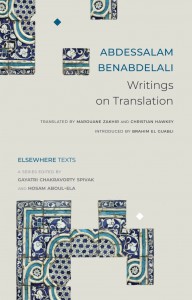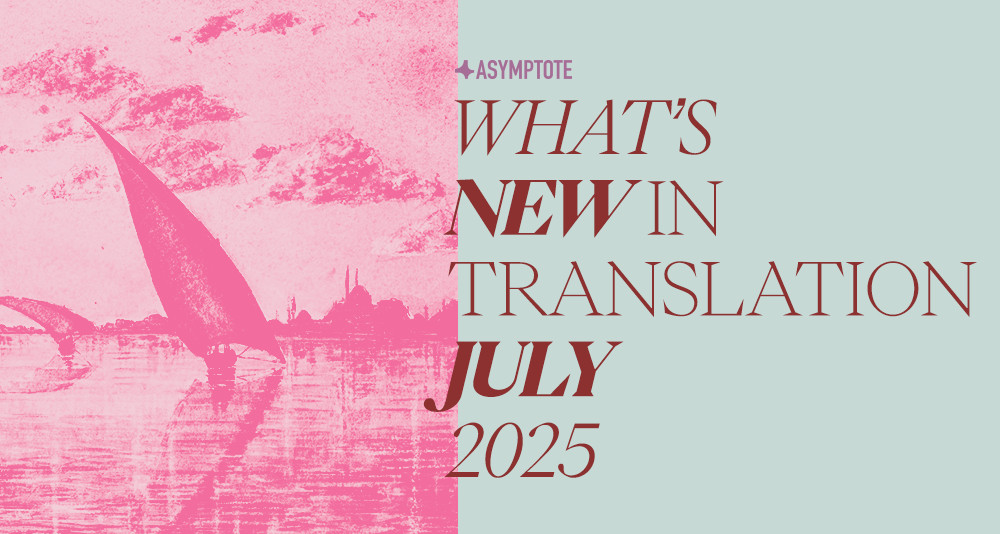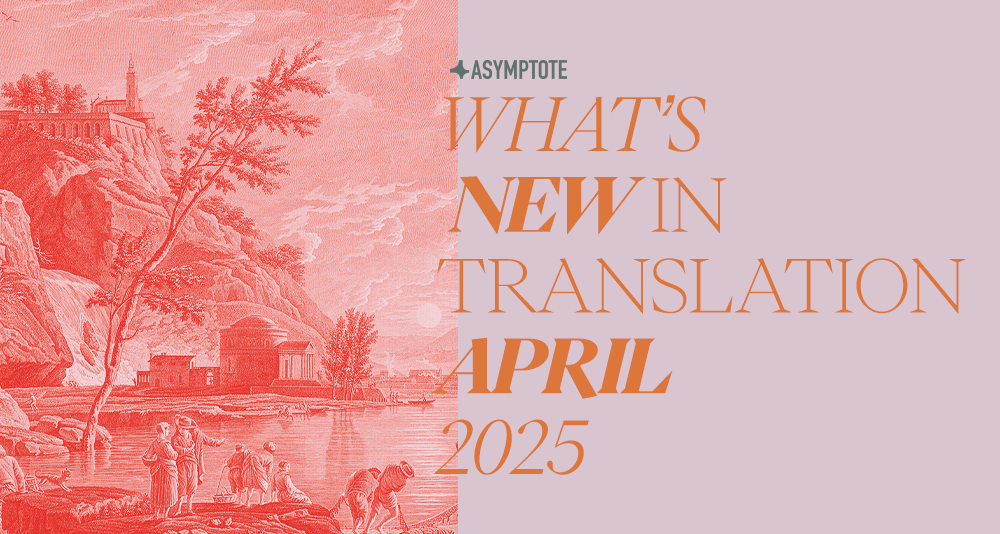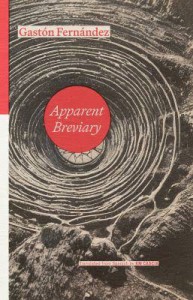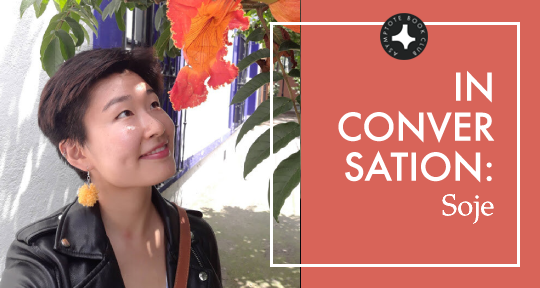Though the pandemic that serves as the catalyzing disaster in Choi Jin-young’s To the Warm Horizon seems immediate to our times, the novel was actually published in 2017—indicating towards the larger, lasting ideas and occupations alive beneath the tide of current events. Indeed, as Choi’s sensitive, dreamy narrative unfolds, the uncanny nature of its topicality is overshadowed by its larger, human concerns of foreignness, settlement, and the way we meet one another. In the following interview, transcribed from a live Q&A hosted by Asymptote Book Club Manager Alexandra Irimia, Soje shares their thoughts on translating the unique novel, and the many invisible challenges of translating Korean into English.
The Asymptote Book Club aspires to bring the best in translated fiction every month to readers around the world. You can sign up to receive next month’s selection on our website for as little as USD15 per book; once you’re a member, join our Facebook group for exclusive Book Club discussions and receive invitations to our members-only Zoom Q&As with the author and/or the translator of each title!
Alexandra Irimia (AI): From Italian opera and sound of the ocean, to radio static and the rain, To the Warm Horizon shapes a unique soundscape. The narrative relies a lot on its sensorial, synesthetic cues which usually demand a lot of skill and craft to be put into words and conveyed convincingly. Besides, as a reader, I felt a lot of intentionality in the author’s use of silence. Did you feel in this novel—or in the rest of your body of work—that there was any challenge particular to translating the musicality of the prose from the Korean into English?
Soje: What a beautiful question! Virtually every translator of Korean literature has commented on this at some point, but repetition is a big deal in Korean literature. In prose, it becomes more noticeable because we, as readers, expect that kind of musicality more from poetry. One of the main stylistic things I noticed was the way Choi Jin-young breaks her sentences in staccato declarations, especially towards the beginning of the book where Dori is narrating her past life in Korea and journey to Russia. And because the fragmented nature of these sentences reflects the character’s state of mind, I tried to replicate every single beat in my first draft. But upon rereading and revising, I found that these dramatic pauses felt more gimmicky in the English than in the Korean, so I had to find a balance between the rhythm of the Korean and what the English language wanted me to do. My reasoning for this partly boils to the fact that the word count expands about 1.5 times from Korean to English, so the rhythm will absolutely change in translation unless details are cut.
There are seven speech levels in Korean, mainly indicated by the verb conjugation which comes at the end of the sentence. Korean novels usually employ the 해라체 (haerache), which means that every declarative sentence ends in the same syllable, 다 (da). So there’s almost this concealed rhyme, and I used to be so fixated on it that many of my sentences in English tended to parallel in structure. Thankfully, my excellent editors at Honford Star and translators such as Emily Yae Won and Anton Hur taught me to vary my sentence structures—something that I’m still honing as an early career translator.
AI: You manage to convey into English an intuition of lyricism that I often associate with East Asian poetry, and which I can imagine is deeply embedded in the original text. Is this lyricism something that flows naturally in your translation—an effortless emanation from the original text—or something that requires a deliberate attempt to preserve in the English version?
Soje: Wow, effortless emanation? I think that’s every translator’s wish! I probably struggled with this more because Horizon happens to be my first full length translation—the two poetry collections that I translated just happened to come out earlier. In the three years that it took to get this published, I think I did three or four major revisions, each time returning to the text with the knowledge I gained from working on the poetry projects. So maybe there’s some relevance there. READ MORE…
